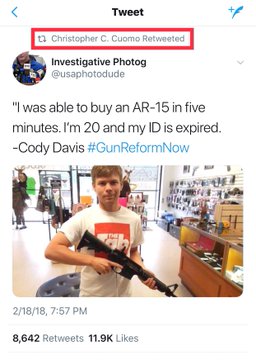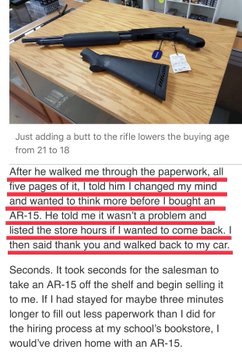
(AP Photo/Ric Feld,File)
Our moral, ethical, and intellectual betters in the media can't seem to figure out why nobody trusts them anymore. Their profession tends to poll about as well as the dregs of society, like pimps and drug dealers and politicians. And yet the less respect journalists earn, the more they demand. The less professional they are, the more they scold us for talking back to them. The more we expose their lies, the louder they lie.
There's been a lot of talk in the news lately about conspiracy theories, so I thought I'd examine a few of them.
Let's start off with a look at the once-respected magazine with the increasingly ironic title Newsweek. Earlier this week, Nina "Presidential Kneepads" Burleigh published a story with a sensational headline: "How an Alt-Right Bot Network Took Down Al Franken." Wow, sounds juicy!
According to Burleigh, Franken's downfall wasn't due to his own actions. It had nothing to do with the multiple allegations of sexual misconduct by numerous women. It wasn't because his own colleagues in the Senate demanded his resignation. No, it was all a nefarious plot by evil Russians and white nationalists and other popular villains of the day. The bad guys used nefarious Internet magic to take Franken down, apparently because they wanted a slightly less famous left-leaning Minnesota liberal to take his Senate seat.
There was just one problem: It wasn't true. At all. Whoops!
The plainspoken apology is a welcome change of pace, but this is an odd thing for an investigative journalist to say. Why would Burleigh need to investigate further?Shouldn't such investigation take place before the story is published? I don't get it, which must be why I'm not a big-shot journalist like Nina Burleigh.
Then there's CNN's Chris "My Last Name Is" Cuomo. The other day, Cuomo retweeted this to his 1.3 million followers:
This is in reference to a June 2016 post at something called The Tab, by someone named Cody Davis. The headline is "I was able to buy an AR-15 in five minutes." Oh my goodness. That's terrible. Take that, you blood-drenched NRA murderers!
Except it's a complete lie. See, when you read all the way down to paragraph 18 of Davis' story about window shopping in a Virginia gun store, you find this:
After [the gun salesman] walked me through the paperwork, all five pages of it, I told him I changed my mind and wanted to think more before I bought an AR-15. He told me it wasn’t a problem and listed the store hours if I wanted to come back. I then said thank you and walked back to my car.
This youngster didn't buy an AR-15. He didn't even attempt to go through the process of buying an AR-15. He just talked to a gun salesman long enough to get a selfie with an AR-15, typed up a headline claiming he bought it, and assumed the reader wouldn't get all the way to the end of his story where he admitted he didn't really buy it. In other words, he assumed most people are as lazy and incurious as Chris Cuomo.
When Cuomo was called out on his error, this was his highly professional response:
That's right, Chris Cuomo. The kid's age and lack of ID weren't a deterrent in buying the gun that, um... he did not buy.
How about one more recent example. Here's MSNBC's Ali Velshi, calling out a hated enemy:
That's awful. Tsk, tsk, tsk. Why was Gov. Scott too busy to meet with his own constituents? Why wouldn't he talk to the survivors of a school shooting in his own state? What possible excuse could he have?
Oh.
These examples are just from this week. And it isn't even over yet! Now that the news comes at us 24/7, the lazy mistakes and inept misinformation and outright lies come at us 24/7 as well.
The media is right to expose conspiracy theories, like the one about school shooting survivors being "crisis actors." (You can Google it; I don't feel like giving that one more fuel.) And Pizzagate, and "Nikolas Cruz was Antifa," and all the rest of that nonsense. That's Gateway Pundit crap. But when it comes to conspiracy theories that confirm the media's biases, they're a lot less skeptical. If it's too good to check, why check it?
Conspiracy theories. Fake news. Plain old online BS. It's a growing problem. But if these professional journalists can't tell what's real and what isn't, if they won't even bother to try, why should the rest of us listen to them?





No comments:
Post a Comment